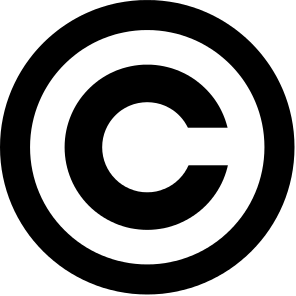What Is Copyright?
Copyright definition
Copyright is a legal right protecting the expression of an idea.
It grants the creator of an original work exclusive rights on how others may use it.
Copyright provides both economic and moral rights.
The copyright gives the owner the right to:
- Reproduce the work.
- Perform or publish it.
- Sell it.
- Distribute copies of it.
- Create derivative works.
The owner can also authorize or prohibit others from performing the above actions. Copyrights prevent others from using a work without permission.
Regarding moral rights, copyrights allow the author to claim authorship and to object modifications of the work.
Copyright is an intellectual property (IP) right, which refers to the creations of the human mind. The other IP right in this category is the industrial property right.
What type of work is eligible for copyright?
Copyright covers literary, musical, dramatic, artistic, and audiovisual works.
Here are examples of eligible works:
- blog posts
- books
- poems
- songs
- fictional characters
- movies
- choreographies
- paintings
- photographs
- computer programs
- electronic databases
- television broadcasts
The work must also be original, creative, and fixed.
Original: it cannot be a copy. It must be independently created by the author.
Creative: it must involve some form of creativity. Even a small amount of it.
Fixed: It needs a tangible medium of expression. One must be able to see or hear it. It must be somehow stable.
How to apply for copyright?
Copyright is automatic as soon as the work is fixed in a tangible medium of expression. No additional application is required.
However, registering your work and displaying the copyright sign may help you better protect the work.
The copyright sign
Nowadays, claiming copyright via the copyright sign and “All rights reserved” is optional but recommended.
Displaying the notice may help defend the copyrights. It makes it more difficult for a theft to defend “innocent infringement”.
Registering a work with the U.S. Copyright Office
Registering a work creates a public record of it.
The U.S. Copyright Office has an online registration application called eCO. It is a paid process to deposit the work.
Most importantly, this registration is required to bring a copyright infringement suit in federal court.
How long does it last?
Copyright lasts for the length of the author’s life plus seventy years. In the case of joint works, it takes into account the life of the last surviving joint.
When the copyright expires, the work enters the public domain.
What are the limitations of copyright?
The Copyright Act defines exceptions and limitations. Fair use and first-sale doctrine are the most important ones.
Fair use
Fair use allows people to use a work without the copyright owner’s permission and compensation under specific conditions.
Here four good examples of fair use:
- criticism
- comment
- parody
- search engines
- news reporting
- teaching
- research
First-sale doctrine
The first-sale doctrine also limits of the copyrights.
When a copyright owner distributes a copy of his work (eg, first sale of a book), he loses the exclusive distribution rights for this particular copy. The buyer can now distribute it too.
This exception makes libraries or video rentals possible.
Best resources to learn more about copyrights
What is copyright? by The Copyright alliance
Copyright by Wikipedia
Understanding Copyright and Related Rights (PDF) by The World Intellectual Property Organization

